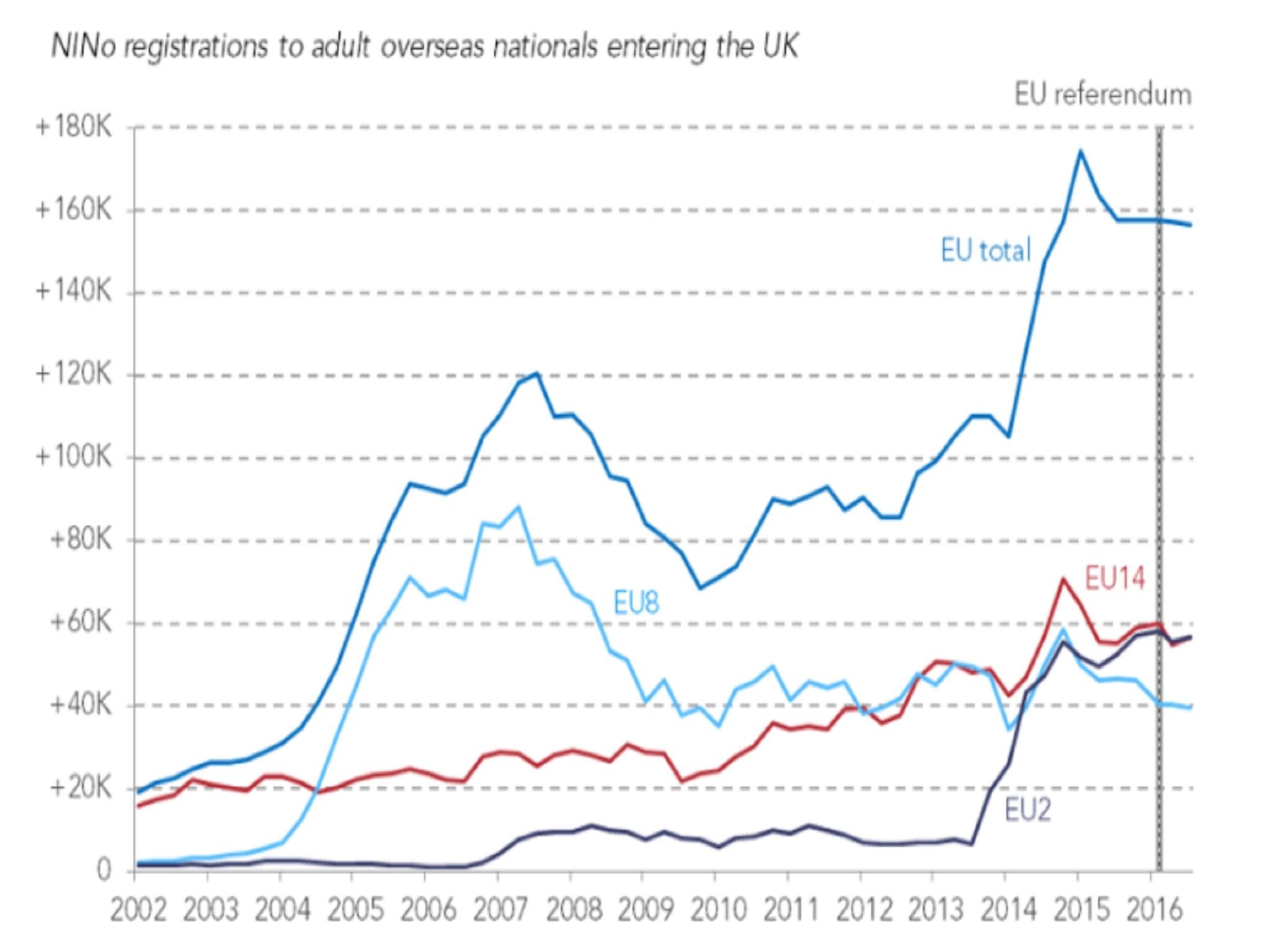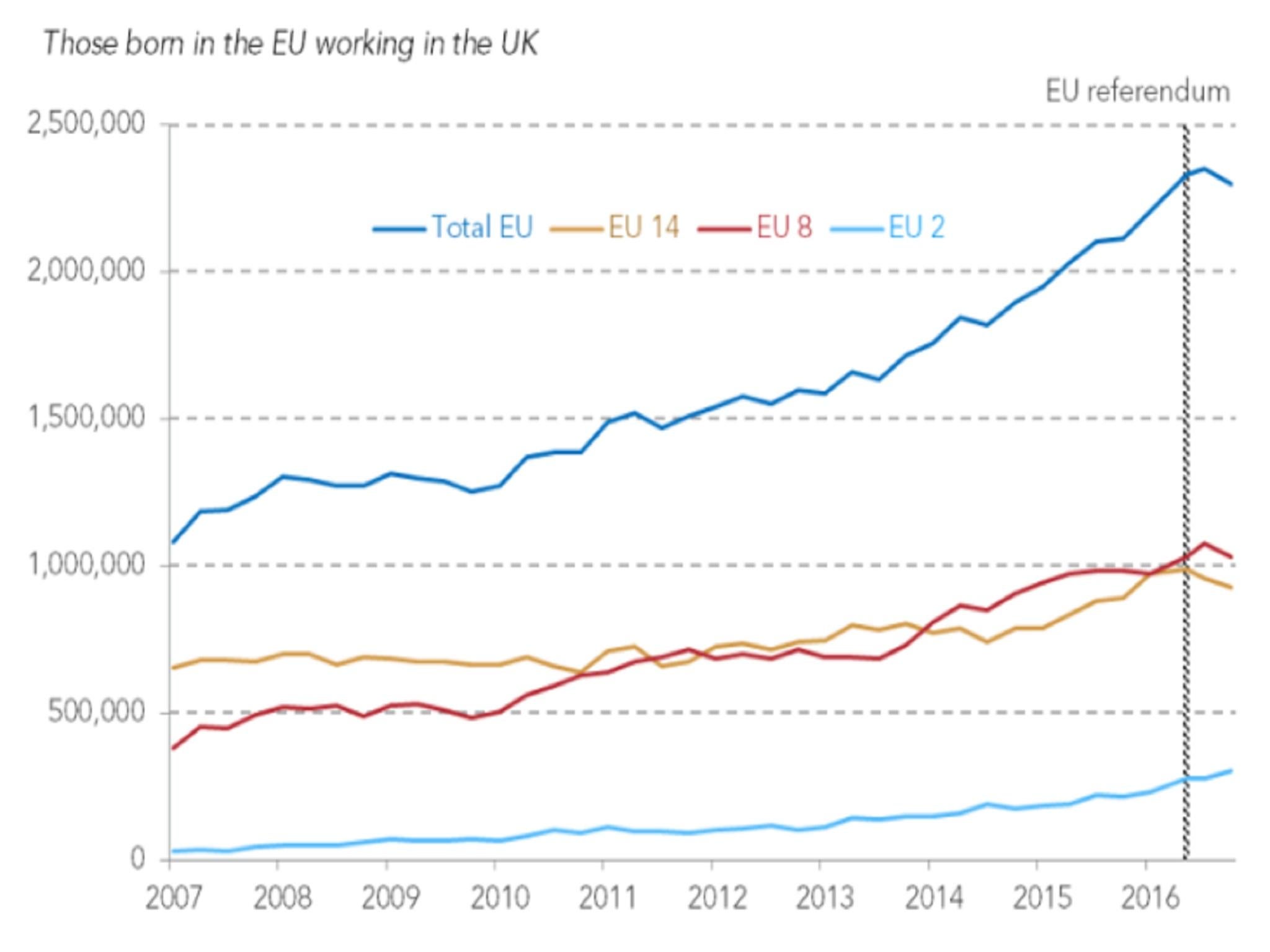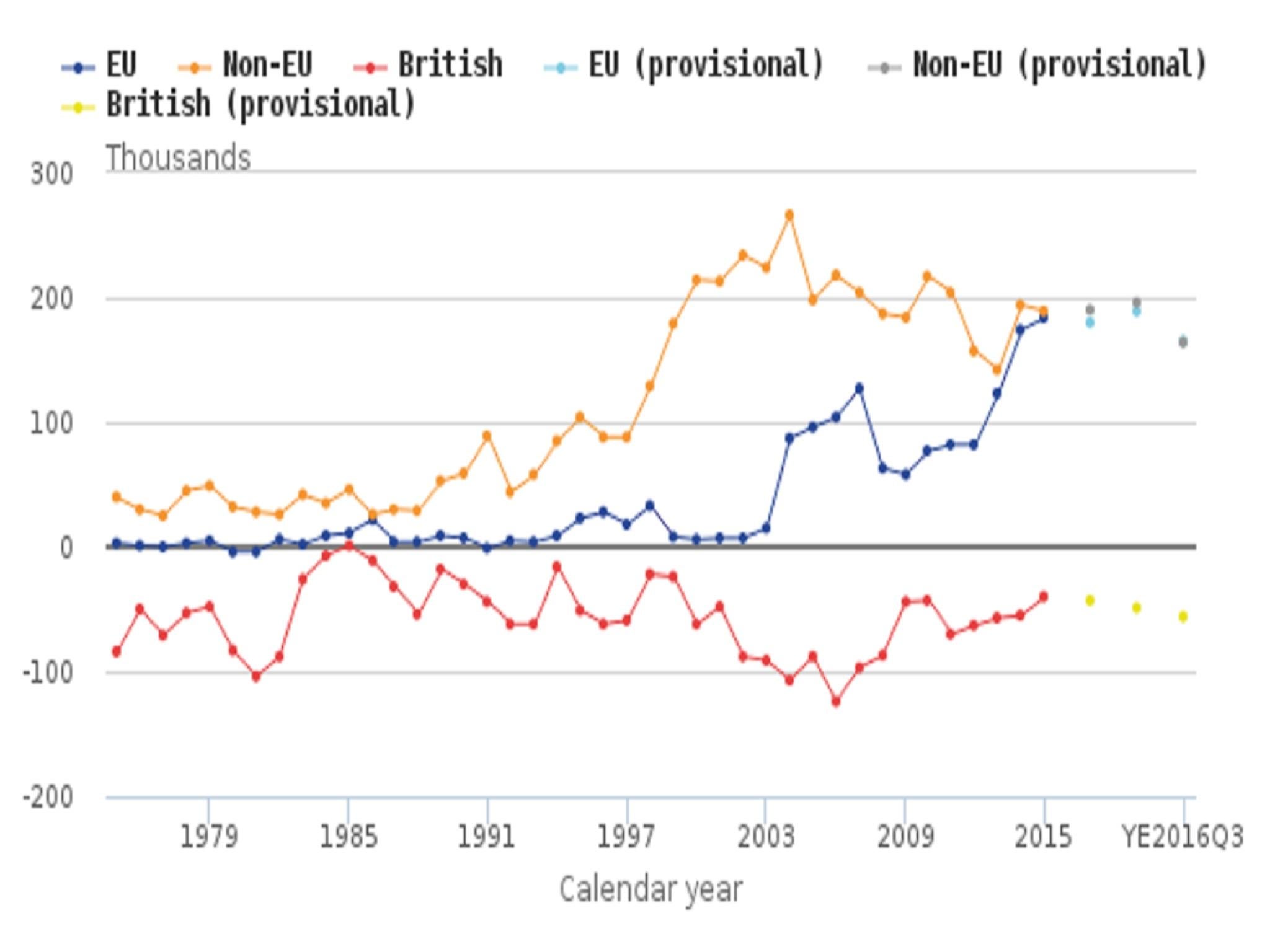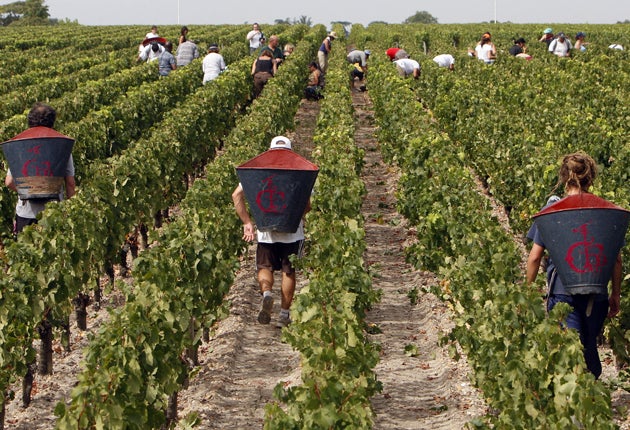Your support helps us to tell the story
From reproductive rights to climate change to Big Tech, The Independent is on the ground when the story is developing. Whether it's investigating the financials of Elon Musk's pro-Trump PAC or producing our latest documentary, 'The A Word', which shines a light on the American women fighting for reproductive rights, we know how important it is to parse out the facts from the messaging.
At such a critical moment in US history, we need reporters on the ground. Your donation allows us to keep sending journalists to speak to both sides of the story.
The Independent is trusted by Americans across the entire political spectrum. And unlike many other quality news outlets, we choose not to lock Americans out of our reporting and analysis with paywalls. We believe quality journalism should be available to everyone, paid for by those who can afford it.
Your support makes all the difference.Signs are growing that inflows of European Union workers to the UK have peaked, just as Prime Minister Theresa May is due to trigger Article 50 to commence the Brexit divorce process.
In an analysis published on Thursday, the Resolution Foundation think tank highlights official data showing that new National Insurance registrations by EU migrants have plateaued since the referendum.
It also points to data from the Office for National Statistics’ (ONS) Labour Force survey, which shows the number of EU workers recorded in the UK appears to have peaked.
Provisional net immigration figures released in February from the ONS also point to a slower rate of EU immigration to the UK in the third quarter of last year, directly after the referendum.
Net long-term international migration from EU citizens was estimated to be 165,000, down from 189,000 in the previous quarter.
NI registrations plateau

“Given that all three sources point to falling or plateauing migration flows, or indeed actually falling migrant worker numbers, we can be fairly confident that a shift is underway,” said Stephen Clarke, an analyst at the think tank.
There have been reports of labour shortages from sectors such as farming and road haulage, which are particularly reliant on EU workers.
EU worker numbers down

The latest report from the Bank of England’s network of regional agents this week said there was “little evidence” yet of EU migrants leaving due to Brexit.
But it added that some had left due to the 13 per cent trade weighted slump in sterling since the referendum vote, which had reduced the value of their repatriated earnings.
And the agents related reports from firms of difficulties recruiting new EU workers “due to a shrinking pool of candidates”.
EU net migration lower

Ms May has interpreted the Brexit vote as a mandate to end EU freedom of movement.
In January, she said that the UK would have to leave the single market because the rest of the European Union had made it clear that it would not negotiate over freedom of movement for EU workers.
The Prime Minister has said she will invoke Article 50 on 29 March.

Join our commenting forum
Join thought-provoking conversations, follow other Independent readers and see their replies
Comments